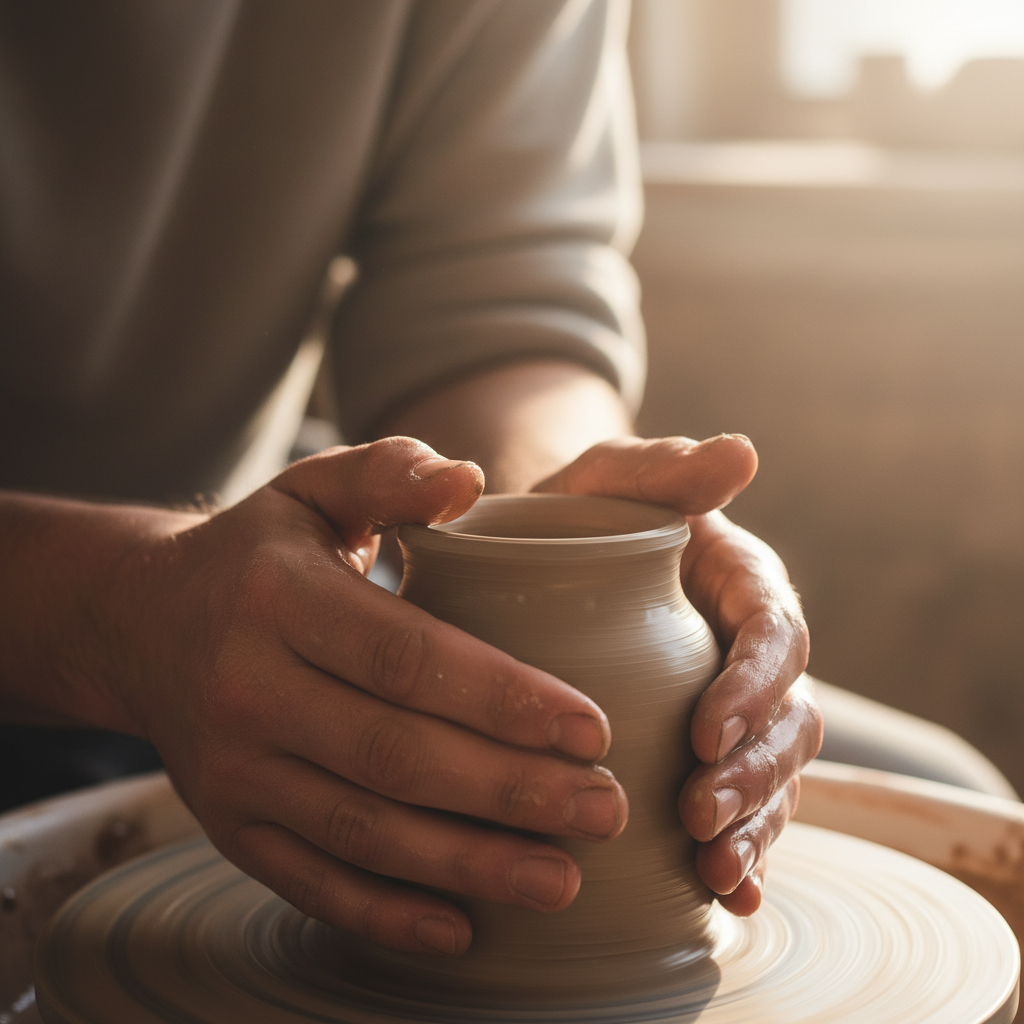There are thousands of books preaching the power of habits.
You’ve probably heard it all:
👉 “It takes 21 days to build a habit.”
👉 “Your habits shape your character.”
👉 “Stack your habits. Track your habits. Hack your habits.”
And while some of that advice holds weight, most of it misses the real problem:
The Spirit of Play.
The reason most habits never take root?
We try to add them to a life already overburdened with work.
And work plus more work?
That registers as mental and emotional exhaustion.
So you try:
- Convincing yourself the next diet will finally work
- Beating yourself up when you “slip”
- Manipulating your emotions with the latest workout trend
But they all lead to the same end:
Loss of confidence.
Low self-trust.
Stuck in the same old loops.
Waiting to “start fresh” in January—again.
So you start over.
You blame your lack of discipline.
But the real issue?
It’s not your discipline.
It’s your perspective.
Have you ever chased a child around a playground?
You’re wiped out in minutes—because in your world, you’re working.
But they’ll go all day—because in their world, they’re playing.
Play energizes you.
Because it taps into the infinite spirit of winning.
Work drains you.
Because it draws from the finite reservoir of emotion.
And when you stack more “work” onto an already overworked life?
You don’t sustain—you shut down.
You don’t need another habit strategy.
You need an upgrade in perspective.
Life-sustaining habits aren’t built on working harder.
They’re built on systems that make it a game worth playing.
The Discipline Myth
When you watch a child kick a ball into a net—over and over again—
you might think, “Wow, that kid has discipline.”
But that’s not what the child is thinking.
In their world, they’re not being disciplined.
They’ve simply learned to love the practice.
They love the game so much, they love improving—
because they’ve connected their improvement to the joy of winning.
They’re not trying to be consistent.
They’re just fully engaged in the moment.
And here’s the shift:
When you learn to love the process—
the micro-wins, the presence, the growth—
discipline becomes the byproduct.
That’s the myth most codependent high achievers miss:
You don’t need to “try harder.”
You need to understand the game.
If you can shift the energy:
- from work to play
- from pressure to practice
- from performance to progress…
The habits stick.
The growth sustains.
And discipline stops being a grind—
and starts being your habit.
The Scoreboards — Points, Badges & Winning
When you play a game and no one’s keeping score—
you play around.
But the moment someone says “One. Zero.”
Everything shifts.
You play to win.
That instinct?
It’s primal.
It’s ancient.
It’s the same energy that fertilizes the egg.
You were born to win.
And the moment the score is on the board—
you wake up.
You lean in.
You sharpen your focus.
You move with purpose.
That’s the power of scoreboards:
They ignite the spirit of play and activate the love of winning.
It’s not about perfection.
It’s about progress you can measure.
Points.
Badges.
Streaks.
Leaderboards.
These aren’t just gimmicks—they’re psychology.
They give your brain a reason to show up, again and again.
Because when you can see your progress,
you believe in your potential.
And now you’re loving the game—and playing to win.
The Balance of Dopamine
If you want to change your habits,
you’ve got to understand how they work—
both psychologically and biologically.
Let’s start with the basics:
When you experience a win—no matter how small—your brain releases dopamine.
Dopamine is your brain’s way of saying:
“That felt good. Do it again.”
It’s not good or bad.
It’s not healthy or unhealthy.
It’s a neutral signal—but it needs balance.
Too much, and you tip into addiction.
Too little, and you spiral into depression.
Dopamine affects everything from:
- Motivation & Reward
- Movement
- Focus & Attention
- Mood Regulation
Here’s what neuroscience makes clear:
Your brain loves quick wins.
Your brain craves visual feedback.
Your brain responds to recognition.
So we built that into the game.
- Streaks to reward consistency
- Visual graphs to show your progress
- Team engagement to spark connection and accountability
This isn’t just about tracking habits—
It’s about using psychology to shift biology.
It’s the synergy of WE:
- The inspiration of spirit
- The motivation of mind
- The desire of body
When all three align—you fully activate.
That’s what it takes to break the gravity of old patterns
and transform your identity into a new, sustainable reality.
Inside the Gamification of the YDBG Trust App
There are plenty of habit trackers, calorie counters, and productivity apps in the marketplace.
They count your steps. They log your meals. They keep your streaks.
But if you think the YDBG Trust App is just another habit tracker—
you’ll miss the whole point.
This isn’t just about habits.
This is about Trust—specifically, self-trust.
It’s not designed to just keep numbers and give you graphs.
It’s designed to help you align with what sustains you—principles—
and create lasting success within.
Here’s how the gamification works:
- You earn XP points called Hours Played—this reflects your habit of consistency.
- You build your Say/Do Ratio—this measures your integrity with yourself.
- You grow your Trust Score—this reveals how deeply you can count on yourself to honor yourself.
And as you continue to play?
You begin to break free from codependency.
Because your sense of pleasure and reward is no longer tied to taking care of everyone else…
It now comes from playing the game,
being your #1 investor,
and trusting the process that reflects True Independence.
The scoreboard doesn’t just measure progress.
It reflects a deeper alignment to your truth:
You learn to trust that you are worthy.
Choosing a Principle-Centered Game
Having values is great—we all have them.
But when your values are governed solely by cultural and societal norms,
you’ll eventually find yourself overwhelmed, burnt out, and trapped in codependency.
That’s because values—without alignment to universal principles—are unstable.
They shift with your environment.
They change with who you’re trying to please.
They bend under the pressure of performance.
Universal principles, on the other hand, are steady.
They govern us all—and they don’t flinch under stress.
When you learn to activate these principles in your everyday life—
and embody them through your health, habits, and choices—
your well-being doesn’t just improve… it flourishes.
That’s what the YourDay Balance Game (YDBG) is designed to do.
It guides you—step by step—into full alignment with principles like:
- Every choice has a consequence
- Everything is energy
- Health supports life
As you level up in the game, you begin shifting:
From value-centered (external validation)…
to principle-centered (internal alignment).
Value-centered living leads to codependency.
Principle-centered living leads to True Independence.
And when you live from principles, your choices don’t drain you—
they restore you.
It’s Your Life—Are You Going to Play Around or Play to Win?
Let’s keep it real.
If discipline alone worked, most high-achievers would be thriving.
But the truth is most of them are successfully unsuccessful. They have been borrowing from their net-worth to pay off the debt of their self-worth.
True success – which is sustainable – requires a system that energizes you.
One that rewards consistency for honoring yourself.
One that makes the game of sustaining life winnable and worth playing.
That’s what the YourDay Balance Game was built for.
You don’t need another habit tracker or another app with fancy graphs.
You need a scoreboard that reflects your alignment with principles.
You don’t need to be controlled by the guilt of honoring yourself first.
You need to build self-trust—in a community that gives you permission to love yourself,
one deposit at a time.
The Trust App is the new scoreboard for Self-Worth
It connects you to something more meaningful.
It gamifies your growth.
And it helps you shift from codependency to True Independence.
Let’s play to Win.







